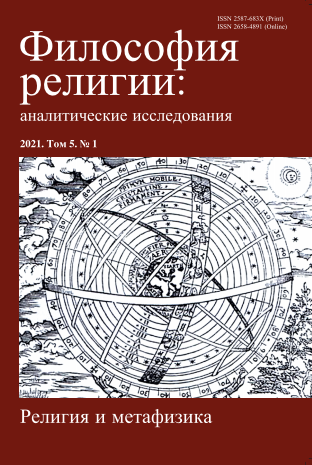Francisco Suarez on God’s Knowledge of Future Contingent Events
DOI:
https://doi.org/10.21146/2587-683X-2021-5-1-124-151Keywords:
possible worlds, contingency, scientia media, freedom of will, future contingent events, second scholasticismAbstract
The problems of contingency, free will, omniscience and omnipotence of God, possible worlds, posed by the famous representative of the second scholasticism, the Spanish philosopher Francisco Suarez (1548–1617) in his work “On God’s knowledge of future contingent events” are discussed in the historical, philosophical and theological context. Suarez (unlike, for example, Spinoza) recognizes the existence of contingent events in the world, shows that the existence of contingent events does not diminish the omnipotence of God. Suarez, following Thomas Aquinas, shows how it is possible to reconcile the existence of free will, the main source of contingency, with the omniscience of God. As Luis Molina, Suarez recognizes God’s knowledge not only of real, but also of possible future. The originality of Suarez manifests itself in solving the question of how God knows possible future events and, accordingly, possible worlds. Attention is paid to the influence of Suarez’s philosophy on the philosophy of modern times, including Descartes and Leibniz. The reader is also offered a translation of the first chapter of the second part of the essay of the Spanish philosopher and theologian Francisco Suarez “On God’s knowledge of future contingent events”, in which Suarez on the basis of the hermeneutics of the Biblical texts proves the thesis about God’s knowledge of future contingent events, which could have happened, but in reality had not happened and will not happen in the future, disproving the arguments of Catholic theologians Ambrogio Catarino Politi (1484–1553) and Jansenius of Ghent (1510–1576), who questioned the assertion that God possesses such knowledge. The translation is provided with comments, an introductory article and a list of references.

 This work is licensed under a
This work is licensed under a 
